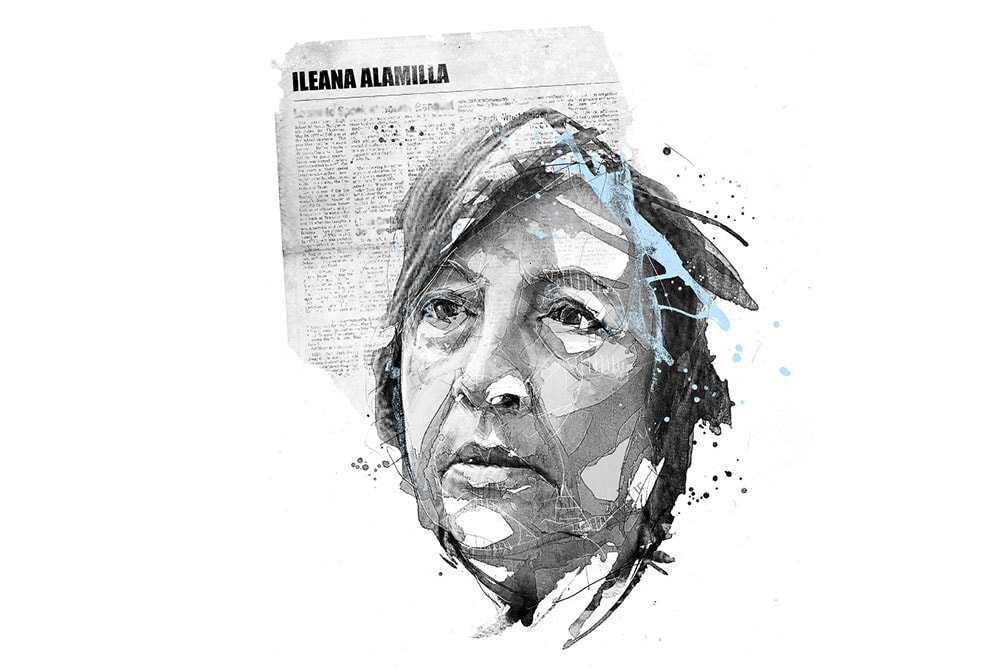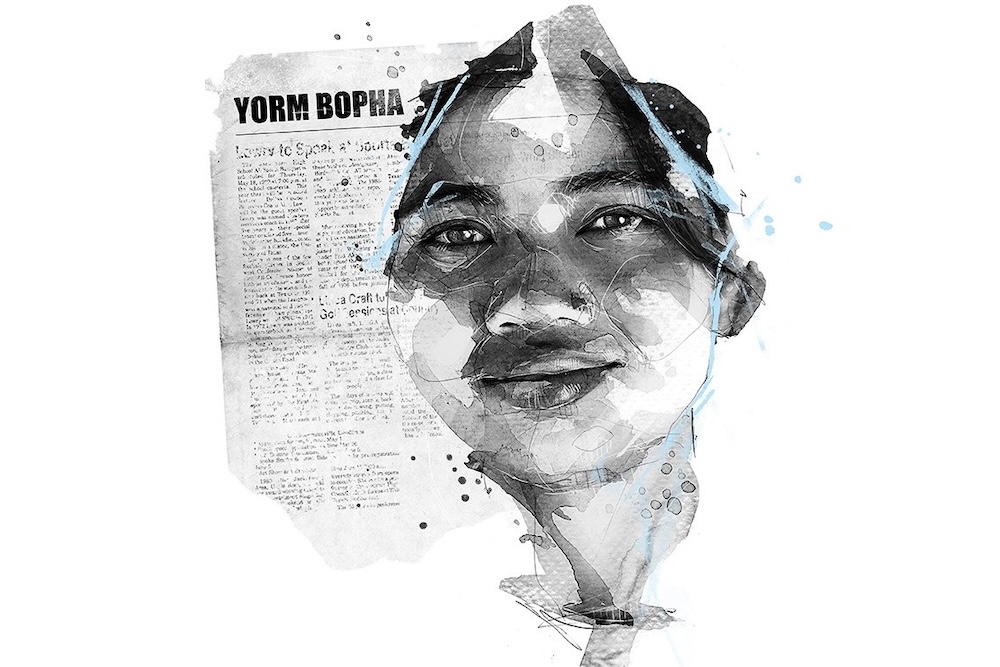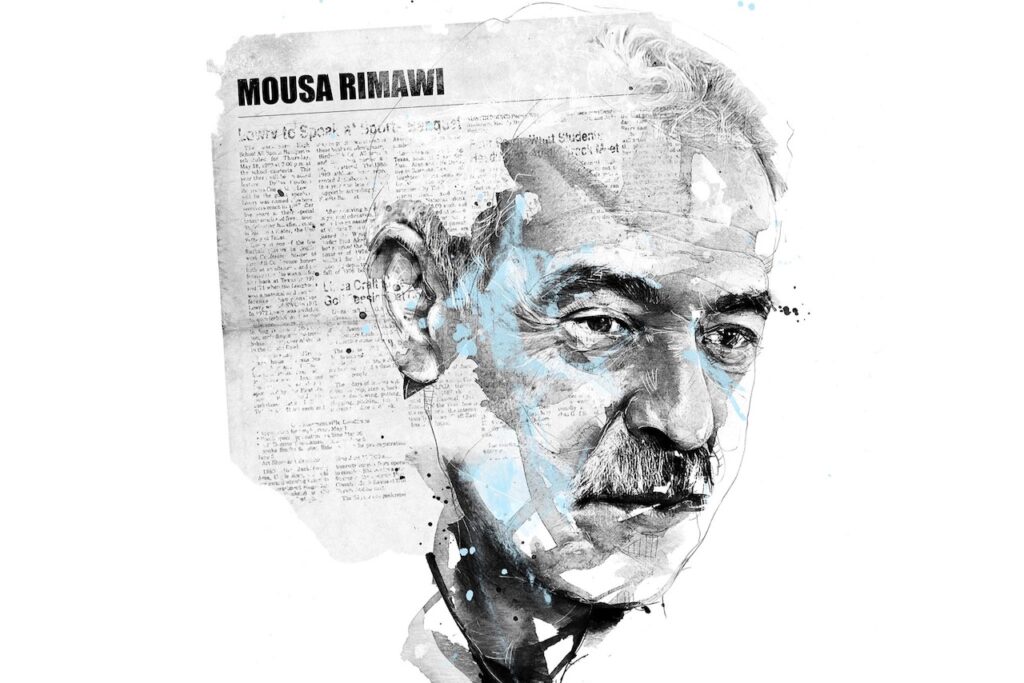Ileana Alamilla, the executive director of former IFEX member Cerigua, was a renowned freedom of expression, press freedom and communications strategy expert, as well as a tireless women's rights activist.
We are demanding security for all. Since 2000, 38 journalists have lost their lives in violent circumstances. Media outlets and journalists continue to suffer attacks, intimidation and harassment in a number of different ways.
Few could believe it when the unexpected news circulated that Ileana Alamilla, a Guatemalan journalist, lawyer, human right defender and activist, had died at the age of 68. On 17 January 2018 an embolism silenced one of the most recognised voices in the Central American country.
Holding a diploma in Intercultural Studies and as an undisputed specialist in gender, journalism and human rights issues in Guatemala, Alamilla was executive director of the Centre for Informative Reports on Guatemala (Centro de Reportes Informativos sobre Guatemala, Cerigua) from 1983 until her death. In 2011, she was named a Messenger of Peace by the Culture and Sports Ministry in recognition of her journalism work in the process leading up to the signing of the Guatemalan Peace Accords. During the awards ceremony, Israel Tobar, then president of the Guatemalan Journalists’ Association (Asociación de Periodistas de Guatemala, APG), noted that Alamilla’s work aided in raising awareness of a social, political and economic reality that has always been concealed. As such, he went on to say, her journalism work made her a messenger of peace, a peace constructed by speaking out for those who have no voice.
A tireless human rights worker, Ileana Alamilla became a specialist in topics relating to freedom of expression, press freedom and communications strategy design, with a focus on women and organisations representing women.
Her experience led to advisory and training roles in communications for social organisations emphasising women’s rights. The United Nations Population Fund (UNFPA), the Office of the United Nations High Commissioner for Human Rights in Guatemala, the Inter-American Development Bank and the Anti-Exclusion Programme (Programa de Lucha contra Exclusiones) are among the organisations with which she worked.
With definitive and well-argued positions, Alamilla knew how to push for justice and fairness. As a result, in 2011 she was recognized by the Guatemalan Congress’s Women’s Commission for her efforts in promoting legislative reforms leading to increased political participation by women.
In January 2014, she was awarded the PEC 2013 Prize for her dedication and fight for press freedom, an honor that was a source of pride for the Guatemalan press community.
Beatriz Colmenares, a colleague and friend of Alamilla’s with whom she made a documentary on the 20th anniversary of the signing of the Peace Accords, described the activist and journalist as a “Guatemalan like few others.”
“She was passionate about her profession and what she represented. In the last phase of her life she dedicated her body and soul to reinforcing security for our colleagues who work throughout the countryside. Protection of journalists became her cause, her reason for being,” Colmenares said.
“I also had the privilege of knowing Ileana Alamilla as a mother and spouse. The proud grandmother who, with obvious joy, showed photos of her grandchildren who lived far with away, and who counted down the days to trips to Mexico with her husband, Adrián, to visit them. In the Zapata Alamilla household there was never a shortage of good conversation. Talking with Ileana involved reviewing the Guatemala that was and discussing the Guatemala that could be in the future,” Colmenares added.
Demonstrations of grief over Alamilla’s sudden death keep coming one after another. Journalists, political leaders, activists… all are expressing their sorrow. Several members of IFEX-ALC (an alliance of IFEX organisations in Latin America and the Caribbean) have shown their grief by sending a letter to Alamilla’s family and colleagues saying: “Ileana was always ready to exchange ideas and experiences with colleagues who shared the common goal of promoting and defending freedom of expression in the region. Without doubt, we will remember her as an example to follow.”
For its part, the entire IPYS Peru team conveyed their deepest condolences to Alamilla’s family and friends: “We have known for many years of the work of this great human rights activist, a defender of press freedom and freedom of expression, and a key player in the fight for respect for the rights of the most vulnerable populations in Guatemala. We are greatly saddened by this sudden loss. We will always remember her with affection and admiration.”
From Bolivia, the National Journalists’ Association (Asociación Nacional de Periodistas) commented: “When we lose a defender of liberty, a part of the collective conscience also dies. Our condolences go out to the Guatemalan journalism community and Ileana’s family.”
The OAS special rapporteur for freedom of expression, Edison Lanza, also commented:
Impactados por la triste y sorpresiva noticia de la muerte de Illiana Alamilla: despedimos a una luchadora y defensora acérrima de la Libertad de Expresión y los periodistas en Guatemala y el continente https://t.co/0ByKOxf14o
— Edison Lanza (@EdisonLanza) January 18, 2018
“Impacted by the sad and surprising news of Illiana Alamilla’s death, we say goodbye to a staunch fighter and defender of free expression and the rights of journalists in Guatemala and throughout the continent.”
The Latin American Journalists’ Federation (Federación Latinoamericana de Periodistas, FELAP) said: “Deeply dismayed and with immense pain at the passing of our dear colleague Ileana Alamilla, we extend a deep embrace to her family and APG colleagues, as well as everyone who worked with her at Cerigua.”
An active member of the Centre for Defence of the Constitution (Centro para la Defensa de la Constitución) between 2010 and 2013, Alamilla also maintained a dynamic role defending democracy and human rights via her columns in the Prensa Libre daily newspaper. Following are some of her contributions: “In Guatemala we have high levels of poverty, we are in 9th place in the world in terms of inequality, and we are one of the most violent countries. Our leaders hear, but they do not listen, they are not attentive, they do no implement anything and they do not care what happens,” Alamilla said in her column “Programa de Protección a Periodistas, estancado”(Journalists’ Protection Programme Stagnates), on 26 October 2017.
“Discussing human rights in our society is controversial due to the stigmatisation that has been created by those who link it with protection of criminals, especially when it comes to marginalised youth and the victims of an exclusionary society, who we call gang members. There is a lot of criticism of an institution created to defend rights that are owed equally to all, without discrimination,” she said last December in an article entitled “Los derechos humanos no tienen fronteras” (Rights do not have boundaries).
Alamilla was sworn in as president of the APG on Monday, 15 January, two days before her sudden death. On that occasion, she said: “We are demanding security for all. Since 2000, 38 journalists have lost their lives in violent circumstances. Media outlets and journalists continue to suffer attacks, intimidation and harassment in a number of different ways.”
Cerigua editor Luis Ovalle concluded: “Guatemala has lost a great woman who contributed to the construction of democracy from the information trenches, not only in terms of freedom of expression, but also with respect to the creation of a Guatemala that is better for all, women, youth, indigenous peoples, refugees.”
Illustration by Florian Nicolle




